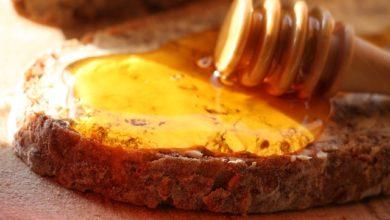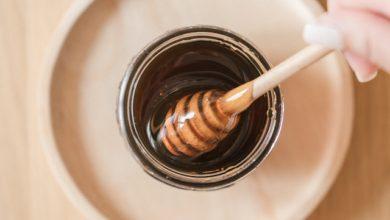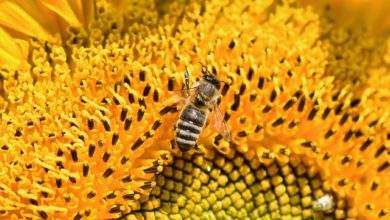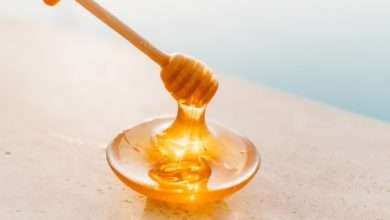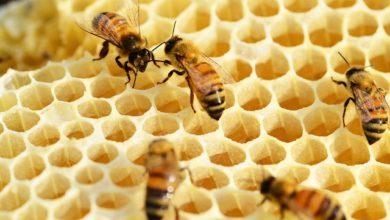Honeybee Nutrition
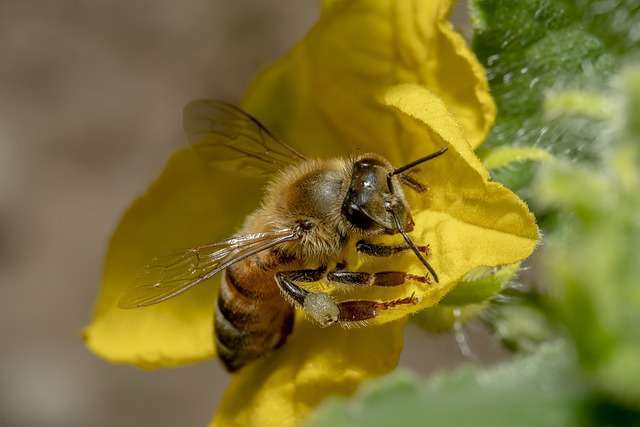
Honeybees are an essential part of our ecosystem as they play a crucial role in pollination, allowing plants to produce the fruits and vegetables that we depend on. Bees are responsible for pollinating about 35% of the world’s food crops, making their role in food production invaluable.
With such importance in the ecosystem, honeybees require an adequate and well-balanced diet to thrive. In this article, we will delve into the nutritional requirements of honeybees and ways to support their nutrition.
The Nutritional Needs of Honeybees
Honeybees need a balanced diet of carbohydrates, proteins, lipids, vitamins, and minerals. Carbohydrates provide energy for the bee, and honeybees use them to produce honey. Proteins are essential for the bee’s growth and development, while lipids provide energy and insulation against the cold.
Vitamins and minerals are also critical for honeybee nutrition. Honeybees require vitamins such as vitamin A, B complex, C, and D to maintain their overall health. Minerals required include calcium, phosphorus, potassium, and magnesium.
The Role of Nutrition in the Bee Colony
Nutrition plays a crucial role in the bee colony, with different bees having different nutritional requirements. Queen bees require a diet rich in protein to develop and produce eggs. Worker bees require carbohydrates for energy and protein for nursing and maintaining the colony.
Nutritional Value of Nectar and Pollen
Honeybees rely heavily on nectar and pollen for their survival. But what exactly is the nutritional value of these substances, and how do they benefit the bees?
Nectar
- Nectar is a sugary liquid produced by flowers to attract pollinators. It is the primary source of carbohydrates for honeybees, providing them with the energy they need to fly, regulate their body temperature, and perform other essential activities.
- Nectar is composed of various sugars, including glucose, fructose, and sucrose, as well as water and small amounts of other substances such as amino acids, vitamins, and minerals. The exact composition of nectar varies depending on the plant species and environmental conditions.
Pollens
- Pollens are the male reproductive cells of flowering plants. Honeybees collect pollen in specialized structures on their legs called pollen baskets, bringing it back to the hive as a protein source for the colony.
- The nutritional value of pollen varies greatly depending on the plant species. However, pollen generally contains a wide range of essential nutrients, including proteins, carbohydrates, lipids, vitamins, minerals, and trace elements.
Health Benefits of Nectar and Pollen for Honeybees
Nectar and pollen are essential for the health and survival of honeybees.
They provide the bees with the nutrients they need to:
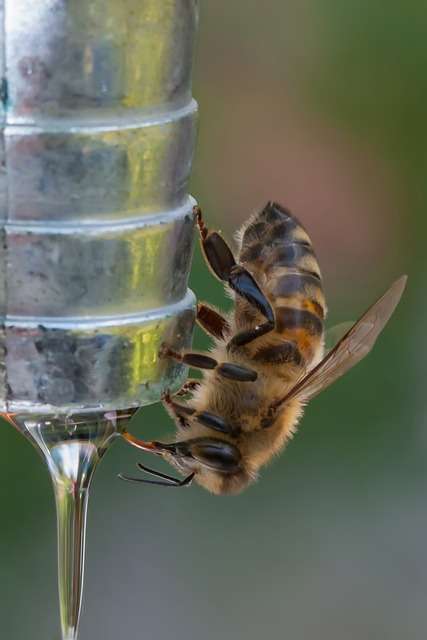
- Develop and maintain their immune system: Pollen is particularly important for the development of the bees’ immune system. It contains high levels of protein, which is essential for the production of immune-related molecules such as enzymes and antibodies.
- Regulate their metabolism: Nectar provides honeybees with the energy they need to regulate their metabolism and maintain their body temperature.
- Produce brood: Pollen is also essential for the production of brood, the young bees in the colony. It contains the protein and lipids necessary for the development of healthy larvae.
- Store honey: The honeybees use nectar to produce and store honey, which is their primary food source during the winter months.
Nutritional Value of Water
Water not only serves as a hydration source but it also contains various nutrients that are critical for the health and development of honeybees.
Nutrient Content in Water
Water consumed by honeybees contains many minerals and trace elements essential to their health.
Although the nutrient levels may vary depending on the source of the water, water generally contains minerals such as calcium, magnesium, potassium, and sulfur. Some regions may contain more minerals than others, but water does contain all of these minerals to some extent.
Beneficial Minerals in Water
Calcium is an essential nutrient that is crucial for the development of the exoskeleton of bees. The element helps strengthen the exoskeleton and aids in the formation of the wax glands.
In addition, magnesium plays a crucial role in muscle function and nervous system activity, making it crucial for bee health. Honeybees are also known to consume potassium to help regulate their heartbeat and maintain the balance of body fluids.
Lastly, sulfur is another essential nutrient that helps with the metabolism of amino acids and aids in the development of antennae in honeybees.
Effects of Mineral Deficiencies
Deficiencies in minerals and trace elements can cause several health problems in bees. Lack of calcium can result in weaker exoskeletons and reduced brood production, which can affect the population growth of the hive.
Magnesium deficiencies can cause a range of issues, including nervous system disorders and reduced flight capability, while potassium deficiencies can lead to heart problems and tremors in bees.
Furthermore, sulfur deficiencies can have severe consequences as it hinders metabolic function and prevents the proper development of antennae, thus reducing the ability to communicate.
How Honeybees Digest their Food
Honeybees are well known for their incredible production of honey, but how do they digest it? Let’s take a closer look at how these insects process their food.
The Mouthparts of Honeybees
Honeybees have specialized mouthparts that allow them to eat and process their food. They have a long tongue, called a proboscis, which they use to suck up nectar from flowers. After collecting nectar in their proboscis, they transfer it to a “honey stomach” where enzymes are added to it.
Digestive System of Honeybees
Honeybees have a unique digestive system that consists of two stomachs. The first stomach, also known as the “honey stomach,” is responsible for storing nectar that has been collected by the bee from flowers. Once the nectar enters this stomach, enzymes are added that begin to break down the sugars and convert them into honey.
The second stomach, also known as the “midgut,” is where the majority of the digestion process takes place. This stomach contains enzymes that further break down the sugars and other carbohydrates found in the honey. Once the food has been broken down, it is absorbed into the bee’s body and used as energy.
The Importance of Microorganisms in the Digestion Process
Honeybees rely on microorganisms to help them break down their food. These microorganisms live in the digestive tract of the bee and help to produce enzymes that aid in digestion. Without these microorganisms, honeybees would not be able to digest their food efficiently.
Regurgitation and Food Sharing
One interesting aspect of honeybee digestion is the sharing of food between bees. Bees will often regurgitate partially digested food and share it with other members of the hive. This helps to ensure that all of the bees have access to the nutrients they need to survive.
Impact of Poor Nutrition on Honeybees
Insufficient and imbalanced diet can lead to malnutrition and weaken honeybees. Poor nutrition affects their immune system, decreases their lifespan, and reduces their ability to perform tasks such as brood rearing, foraging, and honey production. It also makes them more susceptible to diseases and pests.
Relationship Between Honeybee Nutrition and Honey Production
The nutritional health of honeybees is crucial to honey production. Adequate pollen and nectar nutrition promotes healthy colonies with strong immune systems, active brood production, and increased honey yields. Without proper nutrition, bees may suffer from weakened immune systems, queen failure, and reduced brood production, leading to decreased honey production. Beekeepers should prioritize providing their bees with diverse and nutritious food sources to maintain colony health and promote honey production.
Role of Beekeepers in Honeybee Nutrition
Beekeepers play a crucial role in providing their colonies with adequate nutrition. They need to ensure that their honeybees have enough access to a variety of food sources to meet their nutritional requirements. This can be done by placing hives in areas with a diverse range of plants and providing artificial feed when necessary.
Best Practices for Maintaining Honeybee Nutrition
As beekeepers, our priority is to make sure our honeybees are healthy and thriving. One of the essential factors that contribute to bee health is proper nutrition. Bees require a balanced diet that includes a variety of nutrients to maintain their immune system, develop brood, and produce honey. Here are some best practices to keep your honeybees well-nourished:
1. Provide a diverse range of flowers
Bees need access to different types of nectar and pollen sources to ensure a well-balanced and diverse diet. By planting various flowers, trees, and shrubs, you give your bees an opportunity to forage and collect different types of pollen and nectar. Not only will this provide your bees with the nutrients they need, but it will also improve the quality and flavor of your honey.
2. Supplement with pollen patties
During the winter or early spring, when nectar and pollen sources are scarce, supplementing your bees with protein-rich pollen patties is crucial. These patties help to build up the bees’ strength and immunity before the active season begins. It’s important to remember not to overfeed, as this can lead to surplus food storage and a lack of space for brood.
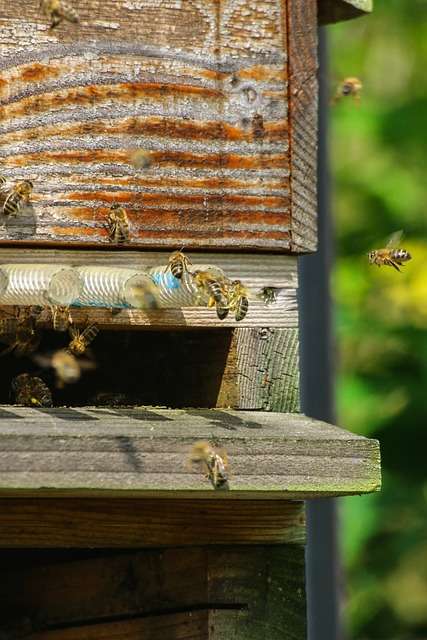
3. Provide sugar syrup
Alongside pollen patties, a sugar syrup supplement can be beneficial for your bees. The syrup mimics the nectar they would typically collect from flowers and will help to keep them alive during the winter months or a nectar dearth. Remember to use a 1:1 ratio of water and sugar, as too much sugar can lead to bees storing excess food and less space for the queen to lay eggs.
You may also add a feed enhancer, such as Hive Alive, to your sugar syrup.
4. Monitor hive health regularly
Regularly inspecting your hives will allow you to keep track of your bees’ progress and identify any signs of failed brood or disease. A healthy hive will have a visible brood pattern and an active and productive workforce. If you notice any issues, address them quickly to avoid any negative effects on your bees’ health.
5. Rotate honey frames
Rotating honey frames is an important practice that beekeepers should implement to ensure that their bees have a fresh and nutritious source of food. Bees naturally prefer the freshest honey, so periodically rotating frames will prevent them from consuming older, crystallized honey. This will help your bees maintain a higher level of health and productivity.
Conclusion
Proper nutrition is essential to maintain the health and longevity of honeybees. To keep your bees well-fed, make sure you provide a diverse range of flowers for your bees to forage, supplement with pollen patties and sugar syrup when necessary, monitor hive health regularly, and rotate honey frames.
By implementing these best practices, you can ensure that your bees receive the nourishment they need to thrive and produce high-quality honey.
